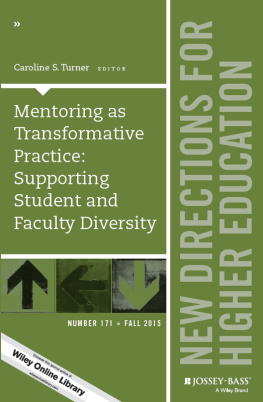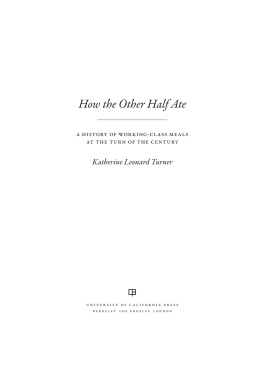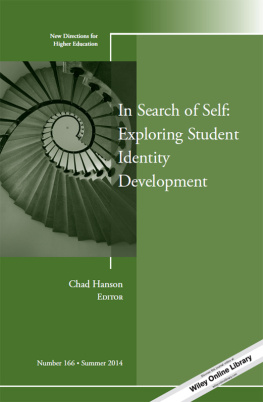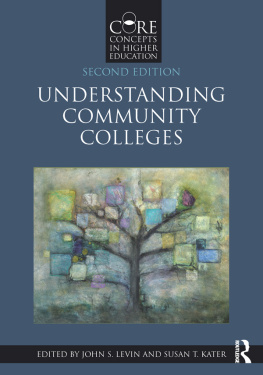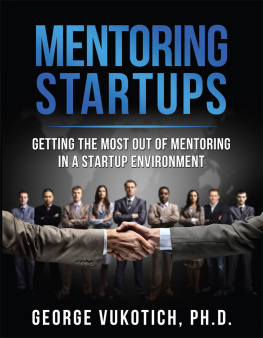
MENTORING AS TRANSFORMATIVE PRACTICE: SUPPORTING STUDENT AND FACULTY DIVERSITY
Caroline S. Turner
New Directions for Higher Education, no. 171
Betsy O. Barefoot and Jillian L. Kinzie, Co-editors
Copyright 2015 Wiley Periodicals, Inc., A Wiley Company. All rights reserved. No part of this publication may be reproduced in any form or by any means, except as permitted under sections 107 and 108 of the 1976 United States Copyright Act, without either the prior written permission of the publisher or authorization through the Copyright Clearance Center, 222 Rosewood Drive, Danvers, MA 01923; (978) 750- 8400; fax (978) 646-8600. The copyright notice appearing at the bottom of the first page of a chapter in this journal indicates the copyright holder's consent that copies may be made for personal or internal use, or for personal or internal use of specific clients, on the condition that the copier pay for copying beyond that permitted by law. This consent does not extend to other kinds of copying, such as copying for general distribution, for advertising or promotional purposes, for creating collective works, or for resale. Such permission requests and other permission inquiries should be addressed to the Permissions Department, c/o John Wiley & Sons, Inc., 111 River Street, Hoboken, NJ 07030; (201) 748-6011; fax (201) 748-6008; www.wiley.com/go/permissions.
Microfilm copies of issues and articles are available in 16mm and 35mm, as well as microfiche in 105mm, through University Microfilms Inc., 300 North Zeeb Road, Ann Arbor, MI 48106-1346.
NEW DIRECTIONS FOR HIGHER EDUCATION (ISSN 0271-0560, electronic ISSN 1536-0741) is part of The Jossey-Bass Higher and Adult Education Series and is published quarterly by Wiley Subscription Services, Inc., A Wiley Company, at Jossey-Bass, One Montgomery Street, Suite 1200, San Francisco, CA 94104-4594. Periodicals Postage Paid at San Francisco, California, and at additional mailing offices. POSTMASTER: Send address changes to New Directions for Higher Education, Jossey-Bass, One Montgomery Street, Suite 1200, San Francisco, CA 94104-4594.
New Directions for Higher Education is indexed in Current Index to Journals in Education (ERIC); Higher Education Abstracts.
Individual subscription rate (in USD): $89 per year US/Can/Mex, $113 rest of world; institutional subscription rate: $335 US, $375 Can/Mex, $409 rest of world. Single copy rate: $29. Electronic onlyall regions: $89 individual, $335 institutional; Print & ElectronicUS: $98 individual, $402 institutional; Print & ElectronicCanada/Mexico: $98 individual, $442 institutional; Print & ElectronicRest of World: $122 individual, $476 institutional.
Editorial correspondence should be sent to the Co-editor, Betsy O.
Barefoot, Gardner Institute, Box 72, Brevard, NC 28712.
Cover design: Wiley
Cover Images: Lava 4 images | Shutterstock
www.josseybass.com
Editor's Notes
Research on diverse students and faculty in academe invariably identifies mentoring as critical to their persistence and advancement (Turner & Gonzlez, 2014; Turner, Gonzlez, & Wood, 2008). Definitions of mentoring vary in concept and practice due to its complex and highly individualized nature. Blackwell's (1989) definition was used to begin discussions for this special issue. Blackwell defines mentorship as a process in which a person of superior rank, achievement, and prestige counsels, instructs, and guides the intellectual development of his or her mentee(s). This process can also guide the protg's social and career development. In essence, the mentorship relationship is one that is built on trust and can result in lifelong, bidirectional benefits for both the mentor and the protg. Delving into the nuances of the mentoring relationship, researchers conclude, The goal of mentoring is not simply to teach the system, but also to change the system so that it becomes more flexible and responsive to the needs and pathways of its membersmentors and protgs (Bernstein, Jacobson, & Russo, 2010, p. 58).
In Mentoring as Transformative Practice: Supporting Student and Faculty Diversity, several education scholars, recognized for their contributions as mentors, provide the reader with chapters describing their successes. They articulate the emergence of successful interpersonal mentoring relationships and mentoring programs. Chapters 1 through 5 provide insights into mentorprotg relationships for men and women of color, within and across race and gender. They illustrate the importance of investing in the relationship-building process, of mentoring practices as social justice work, and of creating affirming learning environments. Chapters 6 and 7 describe the development of online and in-person mentoring programs that support resiliency, self-efficacy, and the expansion of supportive networks for women and minorities in the fields of science, technology, engineering, and mathematics (STEM). Chapters 8 through 10 delineate research-based programs targeted to promote college success for Latino males, to explicate a Latina faculty peer mentoring program based on a pedagogy for equity, and to present an interdisciplinary academic writing program based on enacting feminist alliance principles. In sum, the authors not only provide guiding principles underlying successful mentorships, interpersonally and programmatically, but also point to the potential of mentoring, in the many forms presented here, to profoundly transform higher education to better serve the needs of all its members.
Editor
References
- Bernstein, B. L., Jacobson, R., & Russo, N. F. (2010). Mentoring women in context: Focus on science, technology, engineering, and mathematics fields. In C. A. Rayburn, F. L. Denmark, M. E. Reuder, & A. M. Austria (Eds.), The Praeger handbook for women mentors: Transcending barriers of stereotype, race, and ethnicity (pp. 4364). Westport, CT: Praeger.
- Blackwell, J. E. (1989). Mentoring: An action strategy for increasing minority faculty. Academe, 75(5), 814.
- Turner, C. S. V., & Gonzlez, J. C. (Eds.). (2014). Modeling mentoring across race/ethnicity and gender: Practices to cultivate the next generation of diverse faculty. Sterling, VA: Stylus.
- Turner, C. S. V., Gonzlez, J. C., & Wood, J. L. (2008). Faculty of color in academe: What 20 years of literature tells us. Journal of Diversity in Higher Education, 1(3), 139168.
is professor and graduate coordinator for the Doctorate in Educational Leadership Program at California State University, Sacramento, and is Arizona State University Lincoln professor emerita of higher education and ethics.Informed by the literature and professional practice, this chapter examines the unique mentoring challenges facing women and underrepresented minorities in higher education. Findings indicate that traditional mentoring approaches fall short in fully supporting the needs of underrepresented populations in higher education.
Mentoring Outside the Line: The Importance of Authenticity, Transparency, and Vulnerability in Effective Mentoring Relationships
As increasing numbers of women and underrepresented minorities (URMs) gain access to colleges and universities (American Council on Education, 2011), they are likely to encounter academic and social barriers to their success and retention (Hurtado & Guillermo-Wann, 2013; Swail, Redd, & Perna, 2003). Connections to campus agents like faculty and staff are the strongest predictors of success among college students in general (Pascarella & Terenzini, 2005), and evidence suggests that faculty also play a critical role in the success of racial and ethnic minority students (Davis, 2010; Museus, Palmer, Davis, & Maramba, 2011; Pascarella, 1980; Patton & Harper, 2003; Waldeck, Orrego, Plax, & Kearney, 1997). The importance of having mentors for women and URM students is well documented (Davis, 2010; Fries-Britt & Turner Kelly, 2005; Grant, 2012; Pascarella, 1980; Patton & Harper, 2003; Turner, 2002). At predominantly White institutions (PWIs), URMs can encounter feelings of isolation and uncertainty about their capabilities in their respective fields of study. Mentoring can be an effective strategy to combat many of these challenges.
Next page
